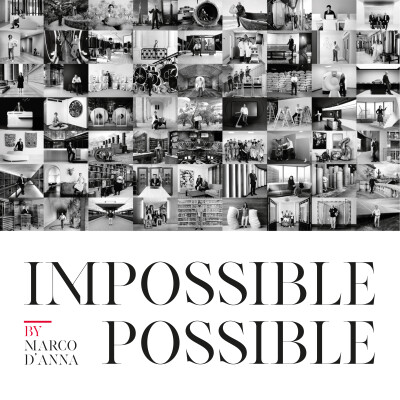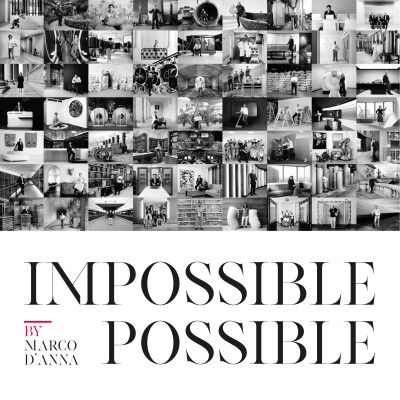Myriam Kadio MorokroMy grandfather always wished to have a doctor among his children. So, when I was born, he said: "She should be a doctor, I would like to have a doctor in the family" because it is a prestigious profession, I guess. I loved natural sciences, life sciences. I watched a lot of shows about that, but I was not very good in math. I had a completely normal high school diploma, without distinction. And then, I went to medical school and there, I excelled. We are in the 90’s and I have a friend, a cardiologist, who tells me: "But you know, right now, there is a global breakthrough on test tube babies, there’s even been a birth". So I started reading about this topic, and from the fifth year until my thesis, I thought only about that. I went to France, I registered by myself. There weren't many Africans who came to study reproductive biology since it wasn't a specialty for them. I didn't even realize that I was doing something extraordinary. It is a specialty like any other specialty. I came to set up a fertility center here to prevent women from going to Europe with visa issues, environmental problems... For me, it was normal to be able to establish a fertility center. I faced many obstacles. Because I was told: "No, it will never work here, you will never succeed. No couple is going to come to you and say: "I have problems having a child". They will prefer to stay among themselves." In any case, I think for me the point was not to give up, to be able to continue, and to show that it was possible. The first baby in Ivory Coast was possible. From 2006, I truly began to think about a real fertility center. And then in 2008, I told myself: "Well, I am not going to make it. I am going to take out a personal loan with my colleague and then we will start a small project like that while we wait for the bank to agree to finance us". We started with 23 couples who came to see us over the year, which is nothing at all. Out of the 23, we had a success rate of 50%. So the babies were born in 2009 and then from there, we started to experience strong growth. Everyone came to us to have pregnancies. In the early days, of course, we didn't pay ourselves, we did everything ourselves. We only had an accountant and we hired staff who were willing to follow us. And then of course, like any business, we had difficult ends of the month, but we had to pay the people, the suppliers too. There were some suppliers who told us: "We are here to support you". And then when our company was launched, at the end of the second year, when we started to work well, we began to hire staff, to pay ourselves. We didn't stop after that. From 2014, we realize that we were overbooked. We needed a reference center, a real center that meets standards. We had a reputation. Everyone knew that, to have a child, you were to come to Procrea. We had women from all backgrounds, many from the middle class, women from lower socioeconomic levels, even from the market, who came. but very few women from upper class, because they always preferred to go to Europe. I thought at that moment: "Oh, but we need something bigger". We readjusted the business plan, creating different scenarios. And then, we started to have a plan, real numbers. So, from 200 million, we moved to 3 billion in investment. So, I went to see Societe Generale with the investment fund that gave me one third and I contributed one third. And then, one day I am at home, and the CEO calls me: "Congratulations! You have been granted a credit of 3.5 billion", "Really? But no one told me!", "Yes, yes, yes, we didn’t tell you? ", "Ok, ok, ok, it's good!". We accepted the project. There you go, that simply, nothing else, that simply. So, the Procrea clinic, from 2022, it's 7000 m² of space compared to 900 m² in the first site. It is a center primarily dedicated to medical assistance for procreation, with everything that can be done in medical assistance for procreation. With the necessary discretion and the right teams. We take care of about 600 couples who come from Ivory Coast, but also from Senegal, Mali, Guinea, including west Africa. There were about 1 500 babies who were born here at Procrea. And then, additionally, we have a pathway for patients who desire parenthood, which is increasingly growing. We have a very strong gynecology center that focuses on fertility, but not only that, since we take care of these women, we help them give birth. Therefore, we have set up a neonatal center at the Procrea clinic. And we also have general medicine to allow these women to stay in this environment, to not move anymore, to feel comfortable. As if it was a medical hotel. I wanted it to be a calm and zen environment, something completely different. So, assisted reproductive technology includes artificial insemination techniques, that's classic. It is the sperm that is prepared and injected into the patient's uterus. Then, there is in vitro fertilization where eggs are taken and placed in contact with the partner's sperm. We also do micro-injection. This is the case for male infertility, where we sort the sperm that we inject directly into the egg. We perform embryo freezing, sperm freezing, and egg freezing. We are considering doing gender diagnosis. So we do everything possible in terms of in vitro fertilization in Ivory Coast. So everything is possible for us since we have the technical platform to do it. For Mother's Day, I receive gifts. At Christmas, I get plenty of thanks. I receive photos of the children, of the children's progress. It's always very touching. And I tell myself that I was right. That it was possible. On the weekend, I was with one of my friends who told me: "But how did you do it?", I replied: "But how did I do what?", "But can you imagine what you have done with Procrea?", "No, I can't imagine", "But look around you: you have created a modern clinic!". For 40 years, there has been no construction of a clinic in Ivory Coast. Today, I can say that I have broken the glass ceiling. I can say that. It's true that it is a strong entrepreneurial dimension. But at first, I didn't even see it as entrepreneurship. I thought it was just a clinic. And then, I was told: "No, you are building a business. So you have to arm yourself with courage and not be afraid of risk". You need people who believe, you need to be able to pull a team towards you. I didn't know it would be a wonderful adventure. It taught me that you have to fight. You have to believe in your dreams, in fact. It's true that when we say it like that, it sounds nice, but you really have to brave all adversity, because no one believed in it. Even within my own family, so you have to be tenacious. And then build day after day, month after month, to be able to hold on to something and hold on to your future. So that's what I did, that's what I managed to do anyway.




